Is it time to start freaking out because you are taking levothyroxine?
Not quite!
As you probably know, levothyroxine is the most commonly prescribed medication used to treat hypothyroidism, and millions of thyroid patients use it every single month.
Even though it’s probably not the best thyroid medication (and may not even be one that you are taking), the fact that new information suggests it may be harmful should matter to you.
New research from a retrospective study has shown a link between cancer risk and the use of levothyroxine in thyroid patients.
In this study, patients taking levothyroxine were found to have about a 50% increased risk of cancer compared to healthy controls.

Even though this may sound terrible, there’s more to the story.
Today we are going to dive into the details of this study and discuss what it means for you as a thyroid patient.
Today, you will learn:
- More about the details of this study and what types of cancers were seen in patients using levothyroxine.
- Why this type of study is not ideal for assessing true cancer risk among thyroid patients.
- What type of variables were not tested for and why we need to have this information in order to make definitive statements.
- Other possible drivers of cancer risk in thyroid patients.
- How this information applies to other thyroid medications.
- More about what the results of this study mean for thyroid patients going forward.
Let’s dive in…
DOWNLOAD FREE RESOURCES
Foods to Avoid if you Have Thyroid Problems:
I’ve found that these 10 foods cause the most problems for thyroid patients. Learn which foods you should avoid if you have thyroid disease of any type.
The Complete List of Thyroid Lab tests:
The list includes optimal ranges, normal ranges, and the complete list of tests you need to diagnose and manage thyroid disease correctly!
Levothyroxine May Increase Cancer Risk by 50%, Study Shows
So, does levothyroxine cause cancer?
The answer to this question is more complicated than you might think which is why we need to spend some time discussing the results of this study and their impacts on thyroid patients.
But before we discuss their impact, let’s first discuss what the study showed.
You can find the full link to the study here (1), by the way, if you want to read it yourself.
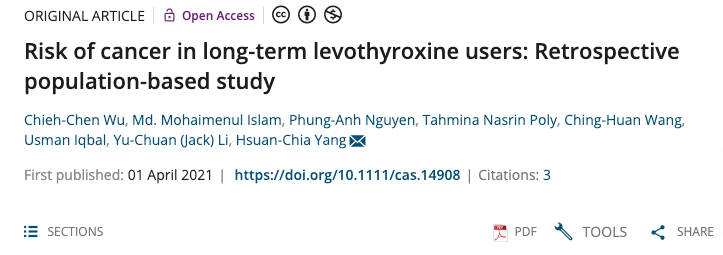
Researchers from Taiwan gathered data from over 600,000 thyroid patients (and 2,400,000 million controls) to assess whether levothyroxine use was associated with an increased risk of cancer.
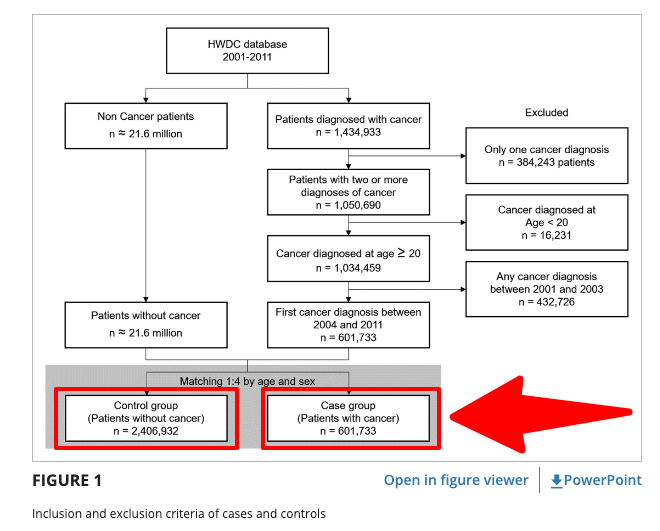
These researchers used a database called Taiwan’s Health and Welfare Data Science Center (2) database which is a massive database of health information among the residents of Taiwan.
This database holds information about medical diagnoses, history of medication use, laboratory and diagnostic tests, dates of visits, lengths of hospitalizations, and much more.
This database is constantly being updated so what the researchers did is they looked backward in time by selecting certain criteria.
This allowed them to specifically look at thyroid patients who were taking levothyroxine for a defined period of time and compare their risk of cancer to healthy cancer-free controls.
This is what is called a retrospective study which means that it uses existing data and compares one group of people to another.
This isn’t the best form of study but it is a good way to put your foot in the door and to show possible connections.
Once you show these connections you can then use further studies to confirm or deny your suspicions.
So even though this study is certainly concerning, it doesn’t necessarily prove anything.
When comparing healthy controls to thyroid patients using levothyroxine they found that levothyroxine users had an increased risk of the following cancers:
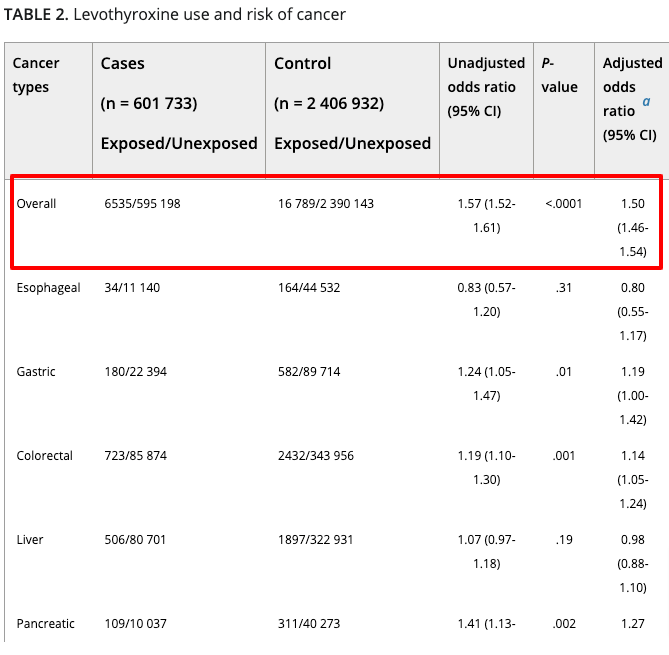
- Brain cancer
- Skin cancer
- Pancreatic cancer
- Female breast cancers
The data also showed that levothyroxine users had a reduced incidence of the following cancers:
- Esophageal cancer
- Cervical cancer
The total data showed that levothyroxine users had about a 50% increased higher risk of cancer at any site.
This is certainly concerning information but it’s not damning information.
So if you are a thyroid patient taking levothyroxine (or any other thyroid medication) sit tight so we can break down why this isn’t necessarily a problem and some lessons to learn from this study.
Some Reasons Why You Don’t Necessarily Need to Worry
It may be tempting to brush this data aside, put your head down and keep taking your thyroid medication, but given the fact that it included hundreds of thousands of patients, it’s a good idea to address it head-on.
But as you will soon find out, there is some nuance to this information that probably renders it less impactful than you might think.
#1. Retrospective Studies Aren’t Perfect
The first has to do with the study itself.
This study is what is referred to as a retrospective study (3) which means it’s not the ideal way to truly assess cancer risk in a patient population.
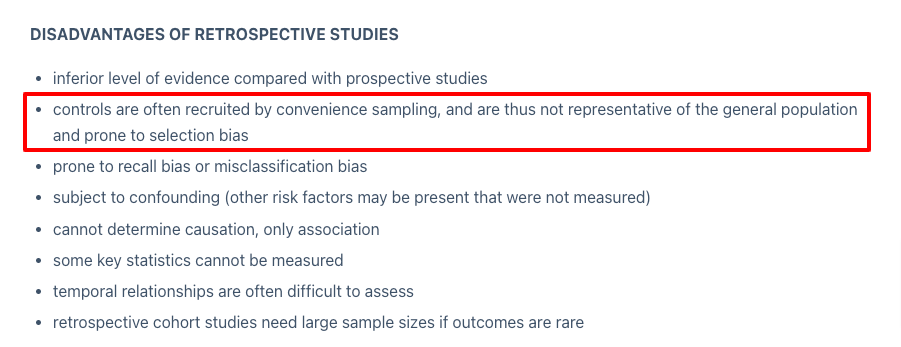
Retrospective studies take existing data and try to draw conclusions based on what happened in the past.
As a result, this study has a few issues that should be addressed in future studies:
- The issue of data keeping and laboratory testing – The results are reliant upon data-keeping from those who took the data originally. This can be a problem because the information that you have to work with may not be all of the information you need. If you knew, for instance, that you were specifically assessing for cancer among patients taking levothyroxine you would be very concerned not only with the fact that patients were taking levothyroxine but how that levothyroxine dose was impacting other factors such as TSH, free T4, free T3 levels, pituitary hormones, cortisol levels, and so on. It may be the case, for instance, that those included in this study were severely underdosed compared to populations in the United States. The researchers note that the lack of information on levothyroxine dose influence is a big problem.
- The issue of confounding variables – Cancer is a very complex disease process (4) and one that we are still trying to understand. Because the data these researchers are looking at already existed, it’s difficult to control for factors that can greatly increase the risk of cancer such as family history (5), history of smoking/drinking, etc. The researchers had a lot of information to work with but they didn’t have all of the information that they would have liked. For instance, a known family history of cancer may have helped exclude certain people taking levothyroxine because of that confounding variable. Aside from the family history of cancer, the researchers weren’t able to take into account BMI (6), smoking status, or alcohol consumption (7) all of which certainly have some impact on cancer risk. It may be the case that thyroid patients are more likely to be overweight which accounts for their increased risk of cancer independent of their thyroid medication.
- The issue of the data source – Next and probably one of the more obvious issues is that of the data source. All of the information came from residents of Taiwan which means that it’s difficult to take that information and apply it to broad or diverse populations such as what is seen in the United States. It is well known, for instance, that certain ethnicities are more prone to developing certain cancers (8) while other ethnicities seem to have protection against certain types of cancers. In addition, location certainly can drive cancer risk given environmental factors (9) that may be present in some areas of the world and not others. It could very well be the case that levothyroxine use increases cancer in thyroid patients in Taiwan but not in the United States, for instance.
- The issue of limiting information on levothyroxine dosing – Lastly, the researchers were not able to assess whether thyroid patients were undertreated or overtreated with levothyroxine. All they know is that certain patients met the criteria for taking levothyroxine over a 3-year period and that they were included in the study. What they don’t know is how that dose of levothyroxine impacted their thyroid function. Were they taking too much levothyroxine? Too little levothyroxine? We don’t know. It could certainly be the case that the actual risk of cancer thyroid medication has little to do with the medication itself and everything to do with the dose.
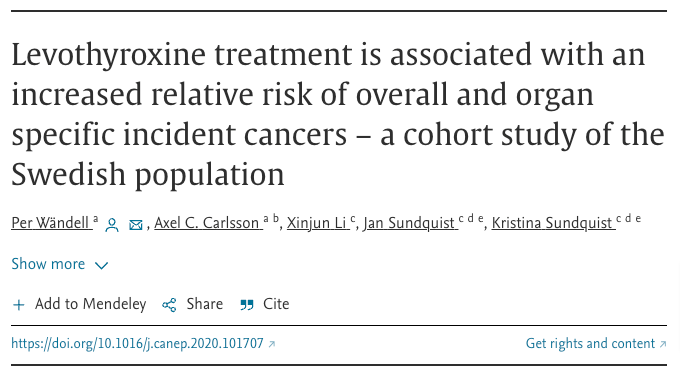
#2. More Research is Still Needed
While it’s good to have this sort of information, it really just opens the door to further research.
Research on any given topic is complex and something that evolves over time.
The type of information we are seeing here is really just saying “hey, there’s something that we need to look at”.
What it’s not saying is “hey, levothyroxine causes cancer and all thyroid patients should stop taking it”.
And this distinction is important.
It’s sometimes tempting to look at information and try to draw definitive conclusions but this isn’t a study where we can do that.
We can say that the information here is concerning but it needs to be taken in context with what is happening with thyroid patients around the globe.
Right now we know that thyroid patients are dealing with a lot of issues, especially surrounding the issue of thyroid medication management.
If you take one quick look at the research on the topic you will see that thyroid patients continue to suffer from a variety of medical conditions and thyroid symptoms despite taking their thyroid medication faithfully.

If you were to take an objective look at that information by itself you would clearly be able to see there is a problem with thyroid medication management.
In my mind, this study really just confirms that reality.
We will talk more about it below but there’s a good chance that the results we are seeing here have more to do with how thyroid patients are being dosed than the impact that thyroid medication has on cancer risk.
For instance, we know that thyroid function is necessary for regulating important cellular processes such as enzyme production (10), mitochondrial energy production, and immune function.
If you are not taking enough levothyroxine then these important processes may not be functioning the way they should.
We also know that a significant number of thyroid patients are unnecessarily taking thyroid medication when they don’t need it.
If you are one of these patients then you might be causing more harm than good as your body tries to grapple with extra hormones that it doesn’t need.
It seems more plausible that being underdosed or overdosed has more of an influence on cancer risk than the type of thyroid medication being used.
But we simply don’t know for sure without more targeted research to help answer these important questions.
More research drives more clarity and will also open the door to questions we didn’t think to ask originally.
In other words, the topic is more complex than it appears and we don’t even know how complex it is without these future studies.
#3. We Don’t Have Information on Other Thyroid Medications
It makes sense that researchers would use levothyroxine as their criteria for inclusion in this study but you should be aware that there are many other medications aside from levothyroxine!
And each of these medications differs in the type and dose of thyroid hormone that they include.
If you’ve spent any time on my blog (and probably many other thyroid blogs out there) then you’ll know that many thyroid patients prefer thyroid medications that contain a combination of T4 and T3.
There are really only a handful of thyroid medications that contain T4 and T3 and these medications are prescribed in only about 10-15% of patients (estimated).
The rest of the low thyroid patients out there are taking levothyroxine.
This is important because what type of thyroid medication you are taking does have some impact on how you view the results of this study.
For instance, if you are someone taking a form of Natural Desiccated Thyroid like NP thyroid or Armour thyroid, does the information still apply to you?
What if you are taking a combination of T4 and T3 in the form of Tirosint and Cytomel?
We just don’t have the answers.
It makes sense that thyroid patients using these types of thyroid medications shouldn’t be lumped into the same group as those taking levothyroxine but we don’t have the data to say for sure.
If you are someone using NDT formulations, T4 + T3 combos, or some other medication aside from levothyroxine, stay tuned for some information that may help drive your decision-making going forward.
#4. Levothyroxine is Bio-Identical
Finally, it’s worth pointing out that levothyroxine is bio-identical to the thyroid hormone that your body produces naturally.
The active ingredient found in levothyroxine is called thyroxine which is the same compound your thyroid gland produces when it is healthy and functioning normally.
Yes, levothyroxine is considered synthetic in the sense that it is manufactured in a lab but the end result is still a bio-identical hormone.
This is worth pointing out because it’s not like levothyroxine is a Frankenstein-like hormone like the hormones found in birth control pills.
When researchers in the early 2000s found a link between estrogen and breast cancer (11), the medication in question was not bio-identical.
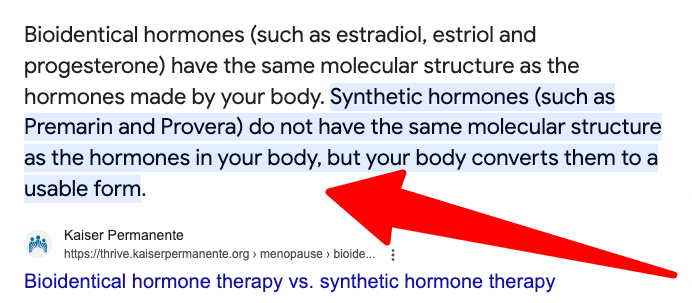
And it’s been long suggested that bio-identical hormones are much safer compared to the altered but similar hormones produced by some pharmaceutical companies.
After all, your body knows exactly what to do with thyroxine because you’ve been producing it since before you were born!
And even before birth, your body was able to utilize it because your mother supplied the thyroid hormone you needed before you could supply your own (12).
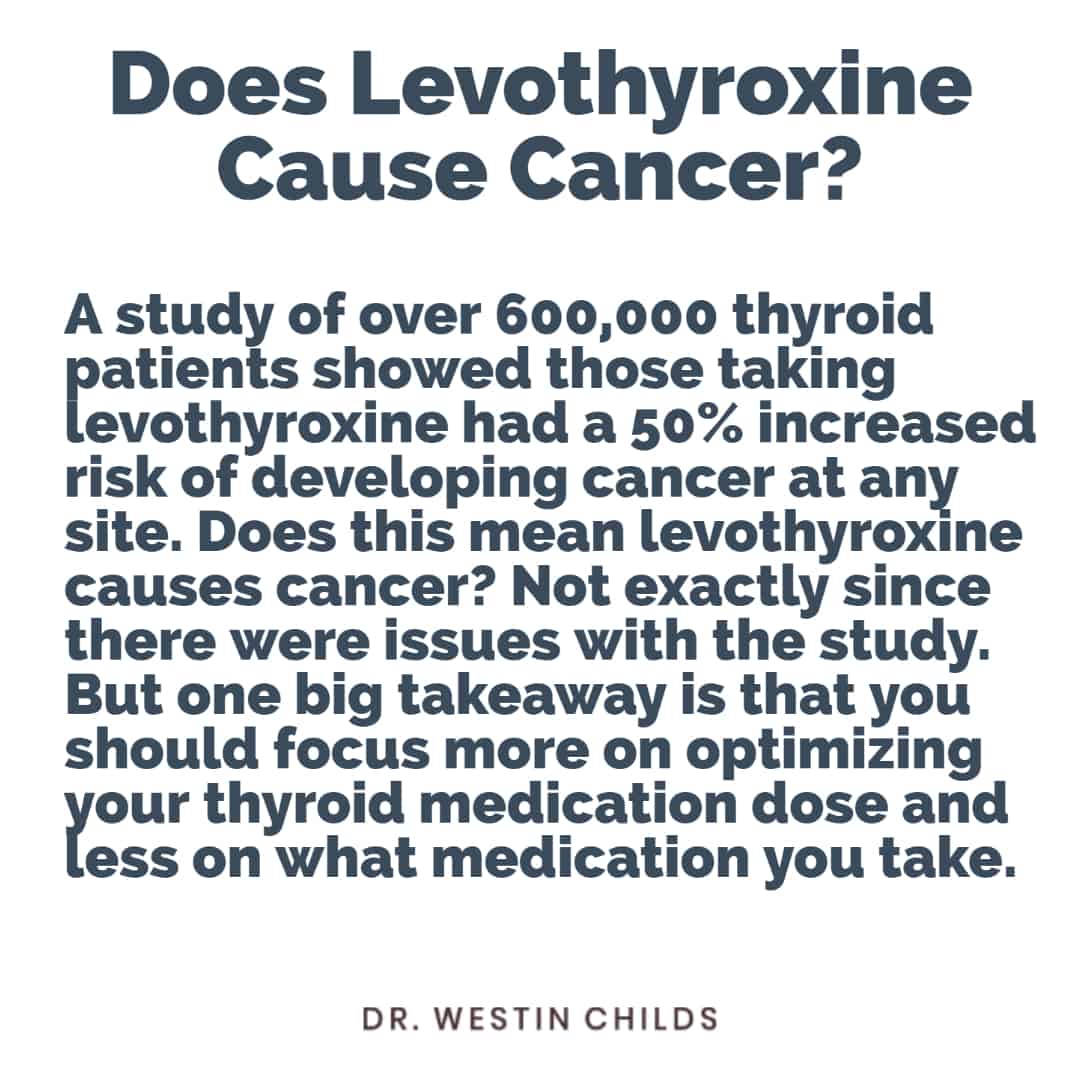
Just because something is bio-identical doesn’t mean that it is automatically safe, though, and this comes back to the issue of dosing.
When we look at something like insulin (which is also bio-identical), we see that excessively high doses of insulin may certainly increase cancer risk in those who take more than they need.
The same goes for estrogen as estradiol.
Excessively high doses of estradiol may increase your risk of uterine cancer even though it is bio-identical.
This is all worth discussing because it brings us back to the idea that cancer risk with levothyroxine use may be more associated with dose than the medication itself.
Lessons & Takeaways From This Study
Even though this study does have some flaws and shouldn’t be taken as gospel truth, it’s almost certainly going to have some impact on thyroid patients and thyroid doctors.
Some will be good and some will be bad.
Let’s talk about some takeaways, some lessons, and what you might expect going forward.
#1. Don’t Take Thyroid Medication Unless You Need it
One major takeaway is the idea that it’s probably not a good idea to take levothyroxine (or any other thyroid medication) unless you absolutely need to be on it.
Thyroid patients are often surprised when they hear that a pretty significant percentage of thyroid patients are taking thyroid medication when they don’t need to.
Some studies estimate this number to be as high as 30%.
Even if we assume that this information does not apply to you 100%, it’s still a good idea to spend some time figuring out if you fit into that 30% that doesn’t need to be on thyroid medication.
The best-case scenario is that you realize you don’t need to be on it and the worst-case scenario is that you continue taking it while learning some valuable information along the way.
As some of you may know, my wife has used T3 thyroid medication (without T4) to treat depression and metabolic issues and she was recently able to completely get off of her medication after being on it for years.
I was convinced that she would need to take it for life but here we are.
Even if you are someone that believes you need to be on thyroid medication for life it’s worth a discussion with your physician to see if a trial of tapering off makes sense.
This doesn’t apply to those without a thyroid or those who are post-RAI but many other thyroid patients may be able to try.
You can learn more about how to do that here.
Caution: do not try to wean yourself off of your thyroid medication without physician supervision!
#2. It May Be More Difficult to Get On Thyroid Medication/Levothyroxine
This could be a good or a bad thing depending on how you look at it.
The trend among doctors has definitely been to restrict thyroid medication to a select population of patients.
In some sense, this is okay because you really don’t want someone to take thyroid medication unless they need it.
And there have been several studies that suggest that taking thyroid medication in the subclinical state is probably not ideal and may result in more harm than good (13).
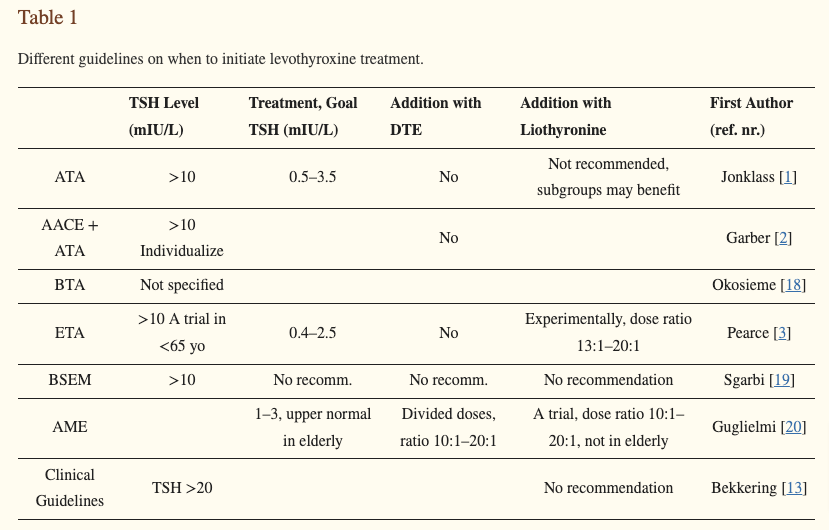
On the opposite side, there are some patients with conditions like early-stage Hashimoto’s who see significant benefits to early treatment from thyroid medication.
I suspect that as this information becomes more widespread that it may push some doctors into being more selective in who they prescribe levothyroxine to.
This will probably mean that it will be more difficult for patients with early-stage Hashimoto’s and early-stage hypothyroidism to get started on thyroid medication.
It probably won’t have a huge impact on those already taking thyroid medication except for in select cases such as those with low thyroid symptoms who were started on low doses of thyroid medication as a trial.
#3. Optimizing Your Dose is Probably More Important Than What Type of Medication You Take
There will be plenty of people who read this study who may feel trapped because they know they need to take thyroid medication but at the same time don’t want to deal with an increased risk of cancer.
People in this situation may find more success in focusing less on what type of thyroid medication they are taking and more on optimizing their thyroid medication dose.
What does this mean?
It means focusing on taking thyroid medications that help you do a couple of things:
- Reduce your hypothyroid symptoms
- Optimize your free T3 and free T4 levels
Thyroid medications like levothyroxine contain only T4 which leaves many thyroid patients with adequate free T4 but less than optimal free T3.
And when it comes to symptomatic management, T3 levels reign supreme.
If you are someone taking levothyroxine but still experiencing low thyroid symptoms then make sure to test your free t3 and free t4 levels.
These free thyroid hormone levels can give you insight into how your body is processing your thyroid medication.
If you have adequate free T4 but low free T3 or total T3 then you can make the assumption that your body is not converting T4 into the active T3 thyroid hormone.
Many factors influence your T3 levels and one of those is your thyroid medication.
You can easily increase T3 levels by taking T3 thyroid medication in the form of Cytomel, liothyronine, SR T3, or NDT.
It’s my current belief that the actual risk of cancer from levothyroxine use stems from being underdosed or overdosed with the wrong type of thyroid medication.
Using combination thyroid medications like T4 and T3 together more closely mimics what the healthy thyroid gland does in those without thyroid disease.
Combining this strategy with the ones listed below should give you some peace of mind as it relates to your personal cancer risk.
#4. There are Still Things You Can do to Decrease Your Personal Cancer Risk
Sometimes it’s difficult to look at information like this and take it all in.
While we’ve focused specifically on levothyroxine and its potential impact on your personal cancer risk, it’s definitely not the only factor that influences that risk.
There are still plenty of other factors that influence your personal cancer risk and many of those are within your control.
You can’t control what thyroid medication your doctor gives you and you may not able to control your medical diagnoses or family history, but you can control things like how often you exercise and what foods you eat.
And when it comes to cancer risk, these things matter.
Weight gain, for instance, is associated with an increased risk of breast cancer (14), colorectal cancer (15), endometrial cancer, gallbladder cancer, kidney cancer, liver cancer, lung cancer, and the list goes on.

Because the foods that you eat and how much you exercise are linked to your BMI and weight, these are things that you can control.
Instead of allowing this information to stress you out, use it to help you make changes in your life that can help you become healthier and (hopefully) more resistant to cancer going forward.
Two things that you can do right away include exercising regularly and eating a healthy whole-food diet.
And as it turns out, I have free resources which can help you do both!
You can learn more about healthy diets to eat if you have hypothyroidism here and how exercise can naturally help improve thyroid function here.
#5. You May be Able to Use This Study to Change Your Thyroid Medication
It’s not all bad news because the results of this study may actually make it easier to switch from levothyroxine to other forms of thyroid medications.
Here’s how:
There are many thyroid patients taking levothyroxine still experiencing low thyroid symptoms who have been actively trying to get their doctor to change their thyroid medication for months or even years.
They are often met with resistance by their doctor for a variety of reasons.
If you were to bring this study up to your doctor with legitimate concerns over your own personal risk of cancer then that might be enough to persuade them to switch you to another thyroid medication.
This option might work best for thyroid patients such as those who are post thyroidectomy and/or post RAI as they don’t have the same option as other thyroid patients to try and wean themselves off of thyroid medication.
If that’s the case then the next best option may be to try and get on a combination of T4 and T3 thyroid medication to ensure optimization of thyroid function.
Wrapping it Up
There definitely seems to be some connection between thyroid patients taking levothyroxine and their risk of developing certain cancers.
That risk is out fully fleshed out, though, and it will require more research to completely figure out what is going on.
I’m not entirely convinced the cancer risk seen in some patients is 100% associated with the use of levothyroxine but rather the impact that levothyroxine has on the body (for better or worse).
If you are concerned about your own personal cancer risk then there are things that you can do right away to potentially help reduce that risk.
Now I want to hear from you:
Are you currently taking levothyroxine?
Were you aware of the connection between levothyroxine and cancer?
Are you thinking about switching thyroid medications?
Are you planning on making any changes to your lifestyle?
Leave your questions or comments below!
Scientific References
#1. onlinelibrary.wiley.com/doi/10.1111/cas.14908
#2. ncbi.nlm.nih.gov/pmc/articles/PMC6509937/
#3. ncbi.nlm.nih.gov/pmc/articles/PMC5037941/
#4. ncbi.nlm.nih.gov/books/NBK20362/
#5. ncbi.nlm.nih.gov/pmc/articles/PMC2726801/
#6. pubmed.ncbi.nlm.nih.gov/30445141/
#7. ncbi.nlm.nih.gov/pmc/articles/PMC3307043/
#8. ncbi.nlm.nih.gov/pmc/articles/PMC7852513/
#9. ncbi.nlm.nih.gov/pmc/articles/PMC5029064/
#10. ncbi.nlm.nih.gov/books/NBK500006/
#11. ncbi.nlm.nih.gov/pmc/articles/PMC3963523/
#12. pubmed.ncbi.nlm.nih.gov/21212091/
#13. ncbi.nlm.nih.gov/pmc/articles/PMC7022757/
#14. ncbi.nlm.nih.gov/pmc/articles/PMC5591063/
#15. ncbi.nlm.nih.gov/pmc/articles/PMC7352519/
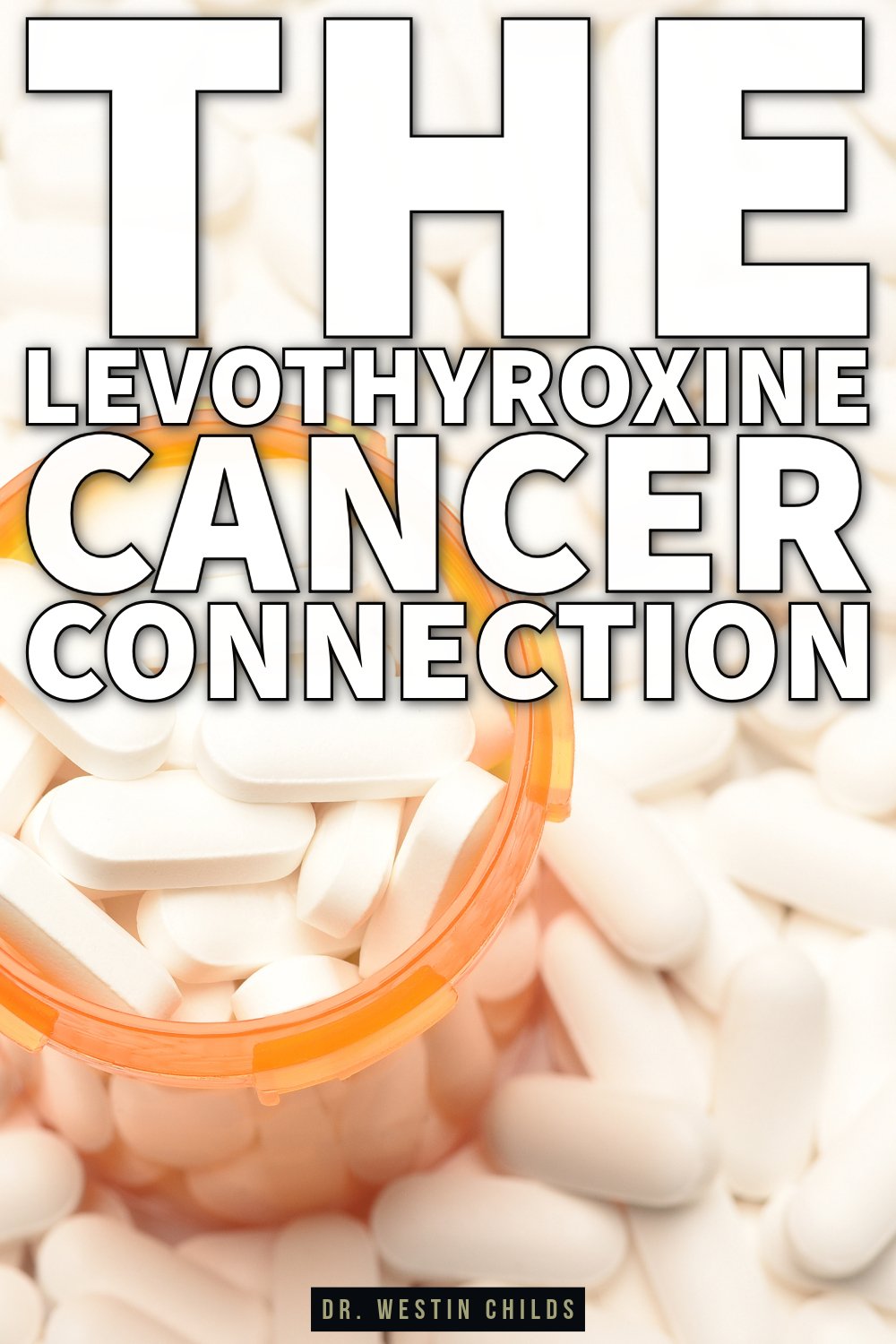
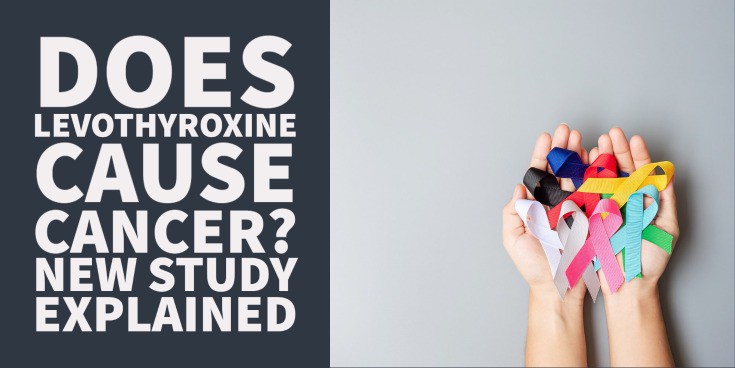

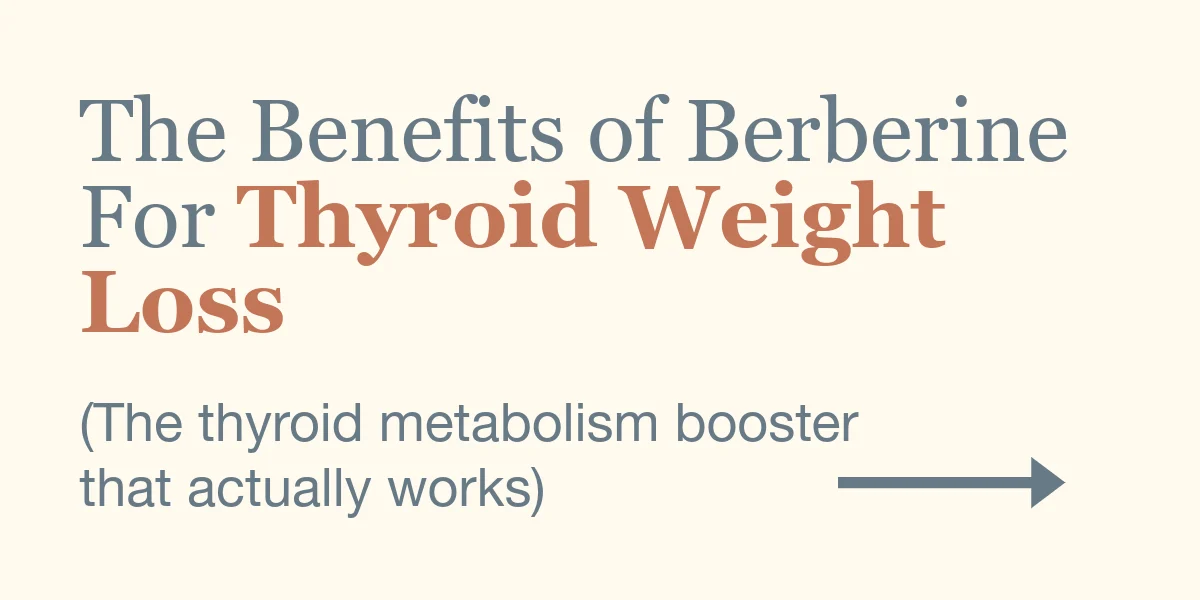






I am post Thydroidectomy in the 1990s. Had Hashimotos, huge goiter, autoimmunity, coversion issues. This is the first that ive heard about the cancer risk. However, I am stuck taking endogenous thyroid hormones because I have no thyroid. I just recently had my doctor switch me from Levothyrocxine/Liothyronine to Armour Thyroid because of this news. I actually feel much better. Thank you Dr. Childs for being our voice.
Hi Mav,
Glad to help! I’m not entirely convinced it causes cancer yet but I do think all thyroid patients should be aware of this potential connection. It’s still probably a good idea to switch to another form of medication if you can.
Oops *exogenous hormone.
I had a Thyroidectomy at age 19 due to a large goiter. All of it was removed. I am now 81 and my levels have been fluctuating for past 10 years. I have been on Synthroid, Levothyroxine, NP Thyroid ( seemed to help, has been removed from market), I’ve been to endocrinologists and they are no help. Now I’m back on Levothyroxine. Levels are still not in normal range. You talk a lot about thyroid problems but rarely give information on those of us who had thyroidectomies. What should our levels be and the best prescriptions for us. I use your Thyroid Essentials
Hi Glenna,
The optimal levels don’t change much for those post thyroidectomy and they can be found here: https://www.restartmed.com/normal-thyroid-levels/
The key difference between someone who has a thyroid gland and someone who doesn’t is that the person without a thyroid is much more reliant on their medication dose. If your thyroid gland still exists then it can still cover slightly if you are underdosed (which many people are). If your thyroid is out, then your medication must be optimized perfectly in order for you to get back to 100%.
I’ve taken Armour and dessicated but with recalls in the past, I’m now on levo and lio. I’m convinced that those on levo only likely have high rt3 and it’s likely the study didn’t look at that esp bc my docs have never paid any attention to it but I feel it’s a crucial aspect to hypo that is mostly ignored.
Hi Carolyn,
It’s very likely that the mismanagement of thyroid medication from a TSH-centric treatment paradigm is playing a big role in what we are seeing.
Hi I follow you love your work
I’m under active my t3 is 24 all my other levels are good since going on oroxine lost weight no matter what I do cannot put it on my weight has stabilised . I feel energetic which is great but I’m worried why I have lost weight did blood test all clear . Can I go natural therapy my doctor says no
I do have palpatations and they have put me on tenormin a beta blocker to relax me a bit I hate taking thyroid tablets and if I stop what will happen please help I’m so stressed
Hi Effie,
I’m going to write an article on how to gain weight safely for thyroid patients which should be out soon. I would recommend keeping an eye out for that!
I don’t doubt the levothyroxin and cancer. Levo causes a lot more than cancer. It causes migraines, hormonal imbalance, bladder issues, brain fog and eye issues. I am looking for alternative treatments as the side effects of Levo were too much for me. I need to make some big changes as being off meds has caused weight gain.
Hi Teresa,
You can find a bunch of natural treatment options for your thyroid here: https://www.restartmed.com/natural-thyroid-remedies/
I have had migraines since I was 10, I am now 58 years old. After my father died in 1996, I became hypothyroid (hashimoto) and started on levothyroxine. In 2008, I was diagnosed with thyroid cancer and had a complete thyroidectomy with the removal of 13 lymph nodes , 3 of which were positive. Had RAI a month later, body scan after 10 days and came back clear. RAI yearly for 2 years. Ultrasound every six months and blood work. In 2015, I was diagnosed with breast cancer, had lumpectomy, chemo and radiation treatment due to a rapidly multiplying cancer. In 2020, I started experiencing lots of joint pain and allergy to the sun, was tested and was diagnosed with medication induced lupus, was taken off estrogen suppression drug to see if lupus marker levels drop. They did but not significant. In 2021 more blood work and still high. I was placed on hydroxychloroquine and my symptoms have improved. I avoid all gluten, I only eat 4 ounces of protein, organic fruit and vegetables. I avoid sugar and all flour. I have recently lost 26 pounds ( plan on losing much more) but have struggled with my weight since 1996. I would like a more homeopathic cure to all my health issues if one exists!
Hi Paula,
That is quite the story! It sounds like you’ve been through a lot. I don’t talk much about natural cancer therapies because I focus more on the thyroid but I know there are some options out there.
Hi, Dr. Child’s,
I was going to a research hospital because of vocal cord cancer 2x.
Last time was 2019, they sent me over to Endocrinologist in same hospital I think because I had a month of radiation after first cancer 2013 and I was concerned that it affected my thyroid. It seemed logical to me that it would, so endo put me on levothyroxin which I asked her for Armour or NP, she wouldn’t even consider, so I sent her the research material on Cancer and levothyroxin. Haven’t heard anything. But I found a Naturopath MD, had a visit with him, he changed my med to NP. But I asked him to order RT3, and the antibodies which he did, but said he didn’t go along with that approach because it doesn’t change the bottom line.?? Can you explain his reasoning?
Patricia K.
Hi Patricia,
Unfortunately, I won’t be able to explain his specific reasoning but you can learn more about why many doctors don’t like ordering the reverse T3 here: https://www.restartmed.com/what-is-reverse-t3/
Patricia seemed to be talking about Thyroid antibodies in my understanding. To me checking thyroid antibodies seems logical since she had cancer and does not know if her thyroid symptoms are due to the therapy or is autoimmune related.
Hi LC,
It would be unusual for a doctor to recommend thyroid antibodies after RAI or thyroid removal given that both of these treatments result in permanent damage to the thyroid gland. Antibodies typically go to zero (or close to it) after these therapies because there’s no more thyroid gland tissue left to attack. The exception, of course, is if the RAI is incomplete or if only half of the thyroid gland was removed.
I was wondering if taking levothyroxine would cause breast cancer cells to grow faster or slower? I have hypothyroidism
Hi Jennifer,
It’s highly unlikely that thyroid hormone would stimulate breast cancer cells but we are still learning more about the connection between thyroid hormone and cancer.
I have Hashimotos and have been on Levothyroxine for a long time. I am now experiencing my second breast cancer and am personally convinced that the medication is a contributing factor.
Hi Carol,
It’s a possibility. It’s hard to say for sure what the connection is between levothyroxine and cancer but it’s an increasingly important topic that I’m sure we will have more information in the coming years.
If you’re undermedicated on Levothyroxine then you’re going to have all sorts of issues and perhaps the imbalance in hormones could cause certain types of cancer but I don’t see how Levothyroxine could be the cause of cancer. These research studies are often times flawed. However I did read an article said that Levothyroxine could cause drug induced SLE. Now that would be an interesting topic because 10 years ago I had a positive anti-dsDNA.
Hi JrBorenz,
That’s generally the way I think about it as well but I do think it’s worth exploring further to make sure that it isn’t the levothyroxine itself causing the issue somehow.
Why do they think levoxthyrine causes other cancer and what do you recommend for those without a thyroid and have to take it.
Hi Laura,
Please refer to the article above which explains the answer to both of those questions in detail.
Dr. Childs,
Can you please help me with a step by step guide to removing/lowering my Levothyroxine ? I am currently using your supplements with 125 mcg Levothyroxine. Thank you.
Hi Cathy,
I’ve outlined that topic in another blog post which you can read here: https://www.restartmed.com/how-to-get-off-of-thyroid-medication/
I recently had my thyroid removed last August and am taking Levothyroxine. Prior to that event I was taking methemizole for 40 yrs.. I was not aware of any connection to cancer. I plan to discuss my test results with my endocrinologist at my next visit. I thought my levels were in the normal range taking 88 mg, but she reduced my dosage at my last visit. I believe this article has been helpful, not scarey. Thank you.
Hi Dawn,
I’m just here to share information and to share my thoughts and opinions on that information. None of my information is intentionally designed to cause fear.
Dear Dr Childs. The subject is more complex than this single study. The evidence shows that higher levels of T4 via their action on the integrin αvβ3 receptor promote cancer. I give detials here https://ibshypo.com/index.php/thyroxine-t4-and-cancer/ , click on the blue links at the bottom of each page to follow the narative. Although most studies are retrospective there are also in vitro experiments and an intervention trial. I suggest the evidence shows that levothyroxine monotherapy should not be routinely used.
Hi Jim,
I tend to agree with that assessment, thanks for sharing!
How does this new information relate to the T2 that I am currently taking?
Hi Linda,
The conclusion would apply to all thyroid hormones. It’s not the thyroid hormone that is likely responsible for the risk but instead the mismanagement of their use. Using any thyroid hormone appropriately, at safe doses, is safe and effective.
Is this 50% increase relative risk or absolute risk? Thanks!
Hi Cindy,
It’s been a while since I’ve looked at the study but I believe it was relative risk.
Yes, I am currently taking levothyroxine.
No, I did not know about the connection between levothyroxine and cancer…
I would definitely like to switch thyroid medications, but wonder if it’s necessary at this point.
I was 16 when diagnosed with hypothyroidism and Hashimotos. I just turned 68, so I’ve been on thyroid meds for most of my life… I was on Synthyroid during young adult years and then put on Levothyroxine. In my early 50’s, I quit it and started using a bovine thyroid supplement. In my early 60’s, I started going to a new doctor and endocrinologist. In September 2021, I had to have a complete thyroidectomy due to cancer and removal of a palm size (benign) tumor under my left clavicle. Post surgery I was back on Levothyroxine. The good part is that all cancer was removed within the thyroid.
Because of my family history of cancers and my own recent history of cancer (below), I don’t know what’s best thing to do. My current endo will fight me on it… He told me he should be in control of my med, and that meds not carried by insurance are too expensive for me. My last appt (Jan 2023) my numbers were great and I’ll now see him once a year.
My history: In the last couple years, I have had a mammogram and MRI yearly to check classifications in my breasts. So far, so good. In July 2020, I had a colonoscopy where 2 polyps were removed, one had cancer cells. Did a sigmoidoscopy in July 2021 to test same area, all clear. Last year the breast center did free blood test to check my genes. One “variant of uncertain significance” was identified: MSH6, a gene associated with autosomal dominant Lynch syndrome (hereditary nonpolyposis colorectal cancer syndrome).
Lifestyle changes: I’ve been with the Dr. Livingood Lifestyle (he’s online on FB) for a couple years. (He has been a God-send!) After my thyroidectomy, I gained 34+ lbs. And it took 18 months to get my thyroid med stabilized to the point I finally feel better, but still very tired all the time.
Currently, I going through a metabolism reset in DLG lifestyle. I’m back to exercising, eating clean, and learning how to do rotational fasting. To date, I’ve lost 17 lbs (3 mths). So I’m finally heading back in the right direction.
I guess my question is: Due to my cancer history, should I look into changing my thyroid med? (I apologize for such a lengthy text…)
Hi Sandy,
It’s really a personal preference and what type of risk you are willing to take. I would say if your symptoms are 100% controlled then the need to switch is probably not very high, but if it were me personally, I would probably move to a combination of T4, T3, and T2.
Thank you. I will discuss with my PCP and get back with you (and maybe ask for another endo). And thanks for all you do for thyroid patients everywhere. ❤️
Is there any reason to request Synthroid instead of Levothyroxine? My health insurance is trying to push me to take the generic since it’s cheaper. Years ago I had a doctor who insisted on Synthroid because he said the generic wasn’t reliable, but my current doctor says that has improved. If my current doctor insists on Synthroid, then my insurance company will go along with it. So I need to know if I should push for Synthroid or accept Levothyroxine. (I wasn’t aware of the link between Levo and cancer until I read your article. I take Levo once a day and T3 every 12 hours. I feel good and believe I am dosed correctly – due to the information you had previously shared about getting a full thyroid panel done.) Thanks very much for all you do!
Hi Elise,
Yes, some people do better on Synthroid vs levothyroxine or vice versa. You can read more here: https://www.restartmed.com/synthroid-vs-levothyroxine/
Isn’t this study subject to the same qualification as all such studies? Correlation *does not* prove causation, it can only suggest it. These two things appear to be *statistically correlated*. Yes,ok, there seems to be a modest case for that in the statistics, with some qualifications, as you note. However, either one can cause the other, in either direction, so far as the statistics of the study go, or they both can be caused by something else not measured nor reported in the study, often the more likely case. The study itself gives no scientifically valid conclusion on causation, only on correlation.
These types of studies are very popular and common in medicine in my experience, but would not be accepted as proving causation in more rigorous areas of science. All that is involved is computer analysis, no actual physical testing, much easier. The data itself is subject to all sorts of inaccuracies and incompleteness, as you note, that severely limit its value. The implication that such authors are pushing is that it’s such a large sample it has to randomize away all the other possible variables, so A causing B is the only possibility left. I think such a conclusion from all such studies I have read, including this one, is weak and misleading on causation at best, if not downright wrong.
Have I missed something there?
Hi James,
That is mostly correct but I’m not sure what you mean by “either one can cause the other, in either direction”. Do you mean hypothyroidism can cause cancer and cancer can cause hypothyroidism? Because I wouldn’t say the connection in the opposite way is as strong.
Correlation does not equal causation but when you have a number of large studies suggesting there may be a connection, it’s a good idea to look deeper into it. It may very well be the case that levothyroxine use doesn’t directly cause cancer but that’s something we can learn with more research. While these studies do not prove causation, they do provide a lot of helpful information in terms of what should be evaluated next. In this way, they are both helpful and informative.
What brands of NDT do you recommend? Armour or another? Thanks for the help.
Hi Rhyena,
I don’t have a preference. You should use whichever one works best for your body. The options are limited right now to mostly Armour thyroid and NP thyroid so it’s more about which of these works best for you.
Years ago when I was first diagnosed with hypothroid after being told I was okay by three doctors, my doctor said that being underactve could
make you have a higher risk of breast cancer. I have been on thryoid meds for 50 years. I have had to change doses a few times because of it fluctuating. I take many medical studies with a grain of salt. I think one of the problems if that doctors think as long as you are in the range of ,4 -5 you are okay . I was close to 5 and my doctor said it was too high for me.
I do not feel well if I am over 3
I didnt know it was tied in to causes of cancer for my daughter and grand daughter both have been taking it for many years. I myself would definitly switch to another product if it was cover by my health insurance. Levothyroxin is very inexpensive.
Hello dr. Childs,
I greatly appreciate your resources and I am a regular visitor on your web and blog. Based on the blood work and symptoms I diagnosed myself in a group of light Hashimoto, liver/gal, menopausal and a hypoglycemic department.
In my search to improve my IBS symptoms I found an info over thyroxine link and metabolism of carbohydrates.
You write:
” … we know that thyroid function is necessary for regulating important cellular processes such as enzyme production (10)…”
Now comes the question:
Is it adequate to conclude that improving the digestive enzymes production by increasing the T4 levels would help mitigate the IBS symptoms?
Can you please share more recourses on digestive enzymes relationship to the levels of thyroxine, levothyroxine? Can higher level of medication stimulate beter digestion? To mitigate the wild IBS symptoms I tried already the digestive enzymes, elimination diet, liver detox with some improvements. My higher dose of T4-digestion was inconclusive.
Looking forward to you reaction on this topic.
Best regards,
Natanielle
Hi Natanielle,
The enzymes I am referring to in that statement are not the same enzymes produced by the pancreas for digestive purposes. They are the enzymes that regulate cellular function. Hypothyroidism can impact stomach acid production and gut motility, though, which both can have an impact on general gut health.
So what should people with Hashimotos do if they are trying to look after their gut health? It seems like it’s a never-ending stream of bad news. Any recommendations would be appreciated.
Also, when you suggested exercise and healthy diet for those who are subclinical or early stage hypothyroid, I have to say that exercise is challenging given that the symptoms cause extreme fatigue in most cases, including body/muscle aches, and depression. It’s fascinating how Drs tell their patients to just exercise more. It’s like saying keep driving your car when it’s out of petrol.
Hi Leanne,
I would recommend reading this article to learn how to improve gut health: https://www.restartmed.com/benefits-of-butyrate-for-thyroid-patients/
In regards to exercise, you can get benefit at all level of exercise, including low impact forms like Pilates, yoga, walking, and so on. You can learn more about the various types of exercises that are beneficial for thyroid patients here: https://www.restartmed.com/best-exercises-for-your-thyroid/
I had a thyroidectomy in December of 2021. I was put on Armour, but was taken off due to thyroglobulin mimicking cancer return. I feel awful on this and can’t seem to feel better, no matter what I do. I called my endo over this cancer risk increase, and of course he said there is no correlation. However, I said I wanted to go back on Armour. We are going to discuss it when I go back in August.
Wondering if this is ALL brands of Levothyroxine such as: Synthroid, Tirosint, Levoxyl, Unithroid, and Levo-T. I am new to this journey, but don’t they all have different binders and fillers? Wouldn’t that matter in this study?
Hi Taylor,
It is most likely related to the thyroid hormone content and dose so it would likely apply to all T4-only thyroid medications.
I have stopped taking Synthroid for my hypothyroidism with my dr’s accord since my levels were normal for many years. I maintained levels in the 4s. However, i now have triple negative best cancer and The emergency doctor yesterday (shortness of breath and heart palpitations( tested my tsh now at 5 and recommends taking Synthroid again. I am reluctant because i know there are risks involved and i have read that the medication can actually accelerate cancer cell regrowth. I’m torn. Any advice?
Hello Dr. Childs,
I am so impressed with your research. I have had Hashimoto’s thyroiditis since 1989 and probably before. I had my thyroid removed in 2021 at Stanford University. My case is very complex. I had autoimmunity that was not measurable it was so high. The endocrinologist and ENT agreed to remove because of the autoimmunity. I am struggling to keep my health post removal. I have taken advantage of your research and experience and have made some changes. My case is difficult and based on yours and my research I believe I am and have been resistant to thyroid, specifically t4, levothyroxine since i started treatment in 1989. My question. Do you know of any thyroid specialist that treat thyroid resistance in the western United States. Thank you so much for all the information you provide to all of us. We are blessed to have you speaking to us. God bless. Kathleen
Hi Kathleen,
Unfortunately, I do not have any recommendations or I would happily provide them.